
Skeldon: The Gateway to Guyana's Coastal Charm
Nestled on the northeastern coast of Guyana, Skeldon is a hidden gem waiting to be discovered by intrepid travelers. This quaint town is known for its rich history and vibrant culture. As you wander through its streets, you'll encounter a mix of colonial architecture and modern developments, reflecting the town's journey through time. Skeldon is surrounded by lush landscapes, offering nature enthusiasts plenty to explore. The nearby Corentyne River provides opportunities for serene boat rides and fishing excursions. If you're a birdwatcher, you’ll find the wetlands around Skeldon brimming with diverse avian species. The town is also a gateway to the famous Skeldon Estate, one of Guyana's oldest sugar plantations. Here, visitors can learn about the historical significance of the sugar industry in the region and enjoy a guided tour of the estate. The local markets in Skeldon are a bustling hub of activity, offering a variety of fresh produce, handmade crafts, and a chance to interact with the friendly locals.
Local tips in Skeldon
- Visit the local markets early in the morning for the freshest produce and a lively atmosphere.
- Hire a local guide for a more in-depth experience of the Skeldon Estate and its historical significance.
- Bring mosquito repellent if you plan to explore the wetlands or take boat rides on the Corentyne River.
- Try the local seafood dishes, especially the fresh fish caught daily by local fishermen.
- Respect local customs and traditions, as Skeldon is a close-knit community with deep-rooted cultural values.
Skeldon: The Gateway to Guyana's Coastal Charm
Nestled on the northeastern coast of Guyana, Skeldon is a hidden gem waiting to be discovered by intrepid travelers. This quaint town is known for its rich history and vibrant culture. As you wander through its streets, you'll encounter a mix of colonial architecture and modern developments, reflecting the town's journey through time. Skeldon is surrounded by lush landscapes, offering nature enthusiasts plenty to explore. The nearby Corentyne River provides opportunities for serene boat rides and fishing excursions. If you're a birdwatcher, you’ll find the wetlands around Skeldon brimming with diverse avian species. The town is also a gateway to the famous Skeldon Estate, one of Guyana's oldest sugar plantations. Here, visitors can learn about the historical significance of the sugar industry in the region and enjoy a guided tour of the estate. The local markets in Skeldon are a bustling hub of activity, offering a variety of fresh produce, handmade crafts, and a chance to interact with the friendly locals.
When is the best time to go to Skeldon?
Iconic landmarks you can’t miss
Stabroek Market
Explore the vibrant Stabroek Market in Georgetown, a cultural hub showcasing local produce, crafts, and the heartbeat of Guyanese life.
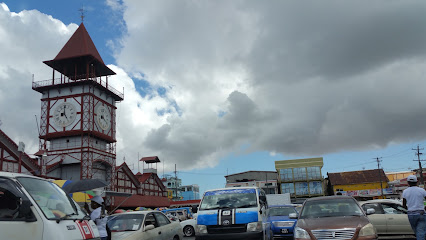
The 1763 Monument
Discover the heart of Georgetown at the 1763 Monument, a historical landmark that honors the legacy of freedom and resilience in Guyana.
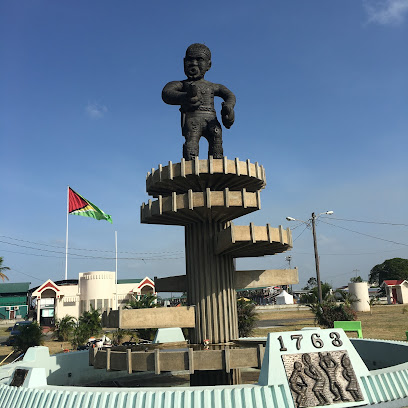
Skeldon Market
Experience the vibrant atmosphere and local flavors at Skeldon Market, a must-visit destination for travelers in Guyana.
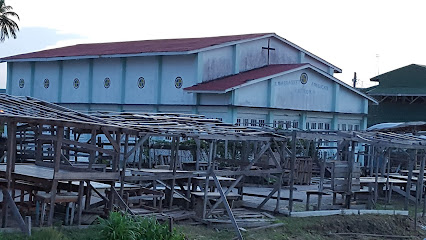
I Love Guyana Sign
Capture the essence of Guyana at the iconic 'I Love Guyana' Sign, a vibrant symbol of hospitality and culture in Georgetown.
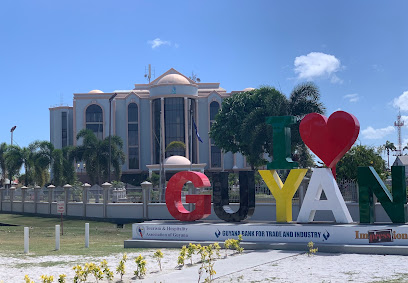
St George's Cathedral
Discover the architectural beauty and historical significance of St. George's Cathedral, a must-visit landmark in Georgetown, Guyana.
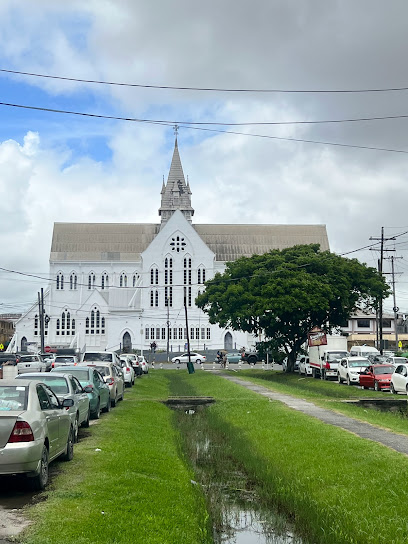
Berbice Bridge Company
Discover the stunning architecture and breathtaking views of Berbice Bridge, a vital connection in Guyana's picturesque landscape.
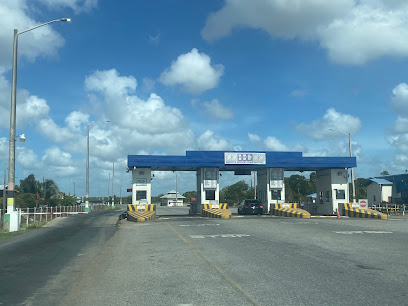
Fort Zeelandia
Explore Fort Zeelandia, a historical landmark in Guyana, showcasing colonial architecture and rich narratives of the nation's past.
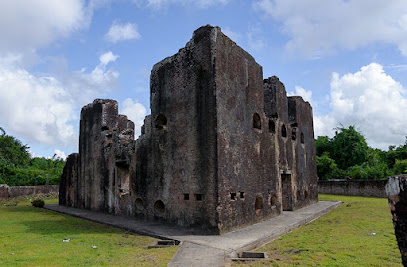
Number 63 Beach
Discover the natural beauty and tranquility of Number 63 Beach in Guyana, where golden sands meet the Atlantic and adventure awaits.
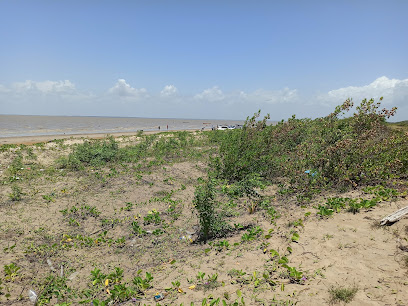
Umana Yana
Discover the architectural wonder of Umana Yana, a cultural center in Georgetown, Guyana, celebrating the nation's rich heritage and community spirit.
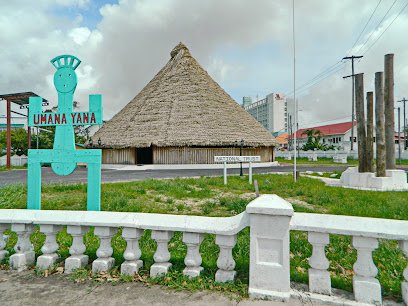
D'Urban Park
Discover the tranquility of D'Urban Park in Georgetown, a lush urban oasis perfect for relaxation, picnics, and enjoying nature's beauty.
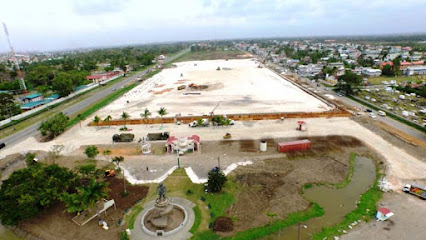
Bath Settlement
Explore Bath Settlement in Waterloo, Guyana – your gateway to authentic local groceries and a taste of Guyanese culture.
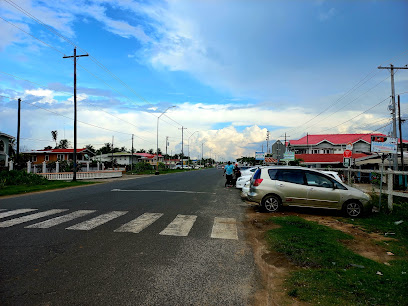
The Christianburg Waterwheel
Explore the rich heritage and serene beauty of the Christianburg Waterwheel, a historic landmark in Linden, Guyana, that showcases the power of water and engineering.
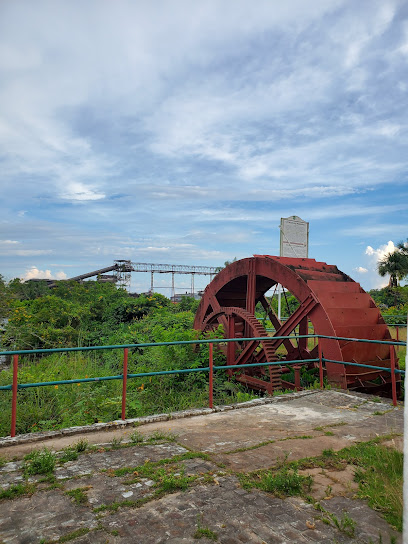
Indian Arrival Monument
Explore the Indian Arrival Monument in New Amsterdam, a historic landmark honoring the rich cultural heritage of Indian indentured laborers in Guyana.
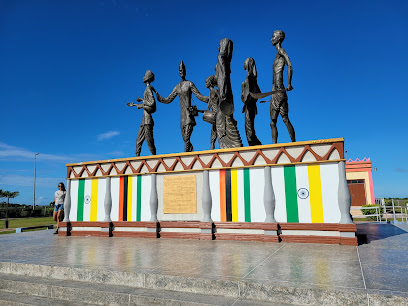
The Rs Farm | Agri-Eco Retreat | Outdoor Event Space
Discover the tranquil beauty and vibrant wildlife at The Rs Farm, an agri-eco retreat in Demerara-Mahaica, perfect for nature lovers and adventurers alike.
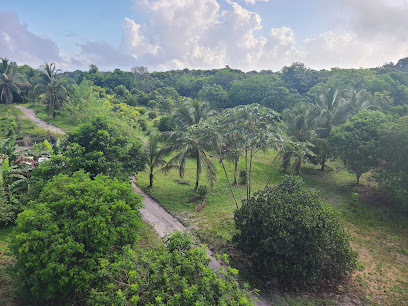
Non-Aligned Monument
Discover the Non-Aligned Monument in Georgetown, a striking tribute to global unity and peace among nations, set in serene gardens perfect for reflection.
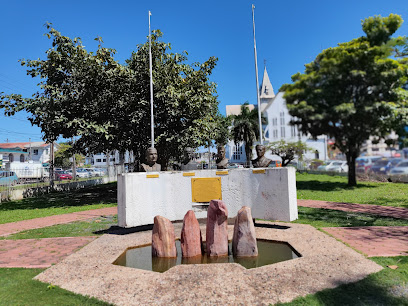
Unmissable attractions to see
Blue Lake Linden
Explore the breathtaking Blue Lake Linden, a hidden gem in Guyana with stunning turquoise waters and lush greenery, perfect for relaxation and adventure.
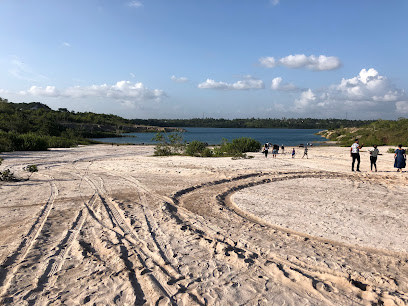
I Love Guyana Sign
Discover the vibrant spirit of Georgetown at the I Love Guyana Sign, a must-visit photo spot in the heart of the capital, celebrating local culture and hospitality.
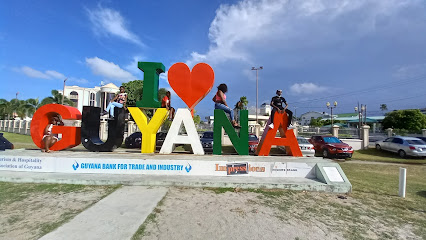
Mahaica River Birding Tour
Immerse yourself in the natural beauty of the Mahaica River while exploring diverse bird species in this tranquil Guyana hotspot.
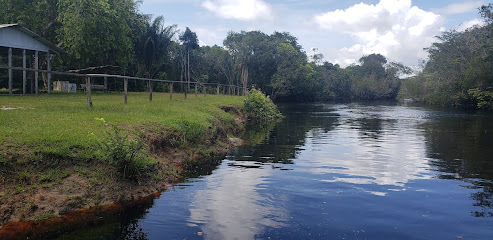
Linden Sky Lake
Experience the tranquil beauty of Linden Sky Lake, a stunning natural oasis in Guyana perfect for relaxation and exploration.
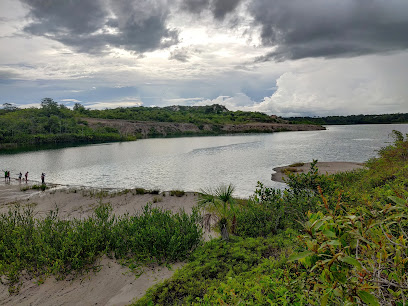
The Rs Farm | Agri-Eco Retreat | Outdoor Event Space
Experience the serenity of nature at The Rs Farm, an agri-eco retreat offering bird watching, camping, and unforgettable outdoor adventures.
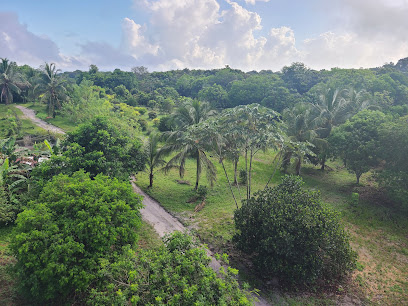
Hauraruni Creek
Experience the natural beauty of Hauraruni Creek, a serene escape for nature lovers and adventure seekers near Georgetown.
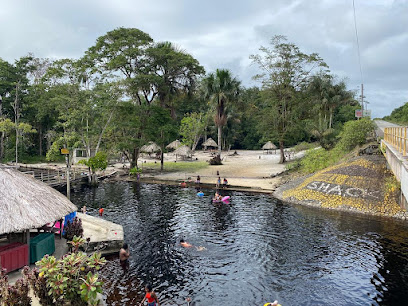
Lucky Spot
Explore Lucky Spot in Linden, a vibrant tourist attraction filled with local culture, delicious cuisine, and engaging activities for everyone.
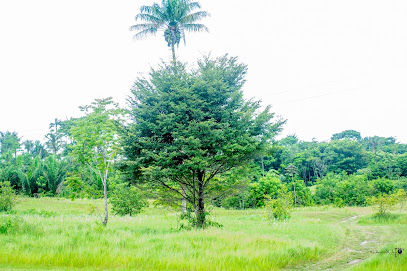
Jafasa Farms
Explore the lush landscapes and fresh produce at Jafasa Farms, a unique agricultural destination in Agricola Village, Guyana.
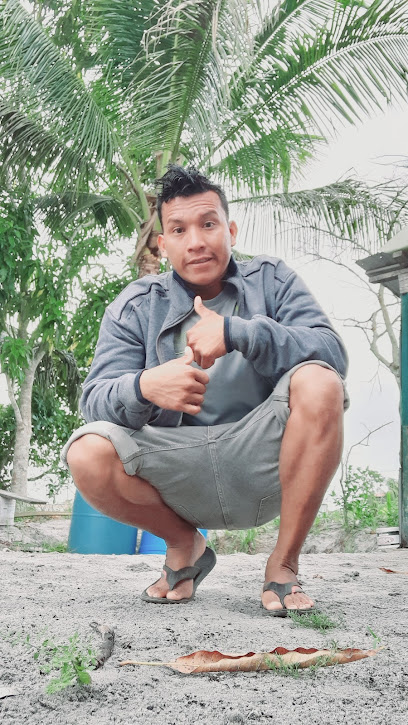
Wallaba Den Eco Resort
Experience nature's tranquility at Wallaba Den Eco Resort in Agricola Village, perfect for eco-tourism and relaxation in a beautiful setting.
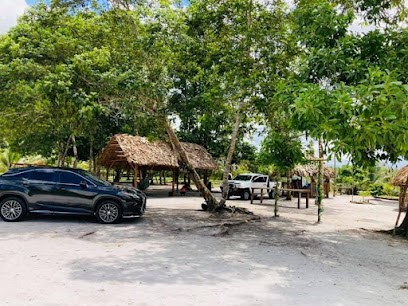
NATURE'S BEAUTIFUL FRUITS FARM
Experience the vibrant beauty of Nature's Beautiful Fruits Farm in Rosignol, a tropical paradise filled with fresh fruits and lush landscapes.
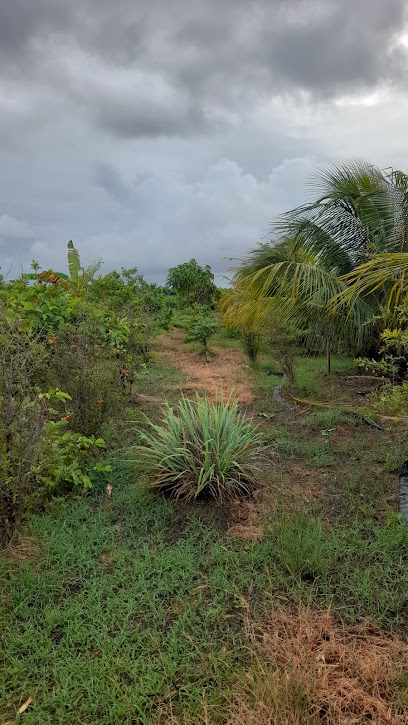
Rose Hall Beach/ Foreshore
Experience the serene beauty of Rose Hall Beach and Foreshore in Port Mourant, a perfect spot for relaxation and cultural exploration.
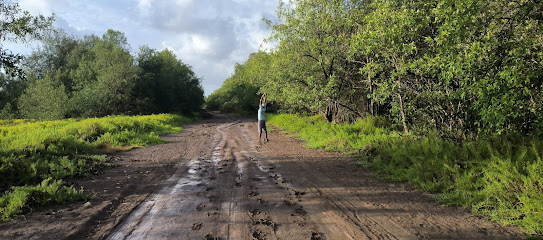
Steve & Jeremy’s adventures
Experience the beauty and culture of Georgetown at Steve & Jeremy’s Adventures, a top tourist attraction for unforgettable local exploration.
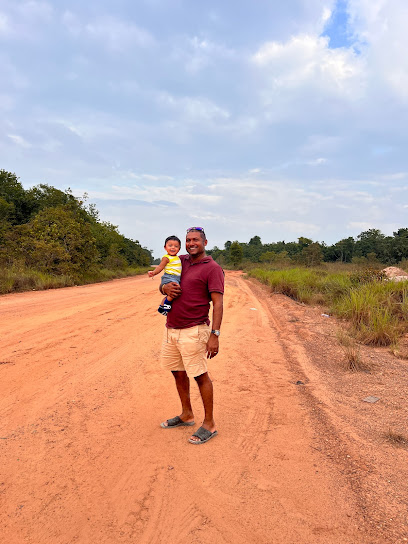
Armadillo Earth Farm
Explore the untouched beauty of Armadillo Earth Farm, a nature preserve in Low Wood, Guyana, where flora and fauna thrive in a serene landscape.
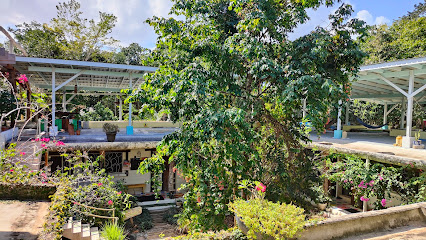
bounceland amusement park
Discover the thrill and joy at Bounceland Amusement Park in Linden, where fun and adventure await for the whole family.
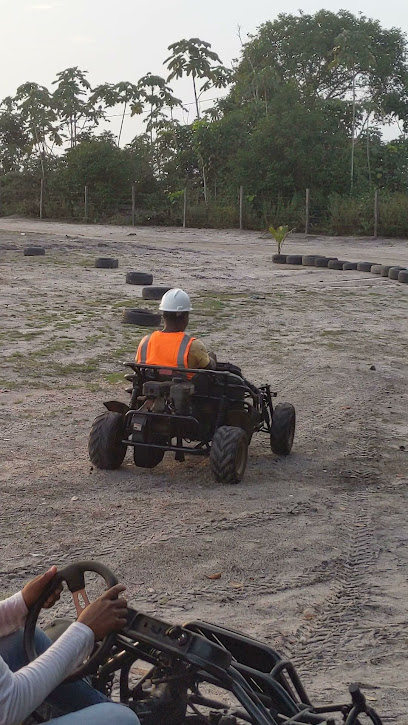
Jagans Memorial Park. Babu John Port Mourant
Explore Jagans Memorial Park in Port Mourant, a serene memorial park perfect for reflection and tranquility amidst nature's beauty.
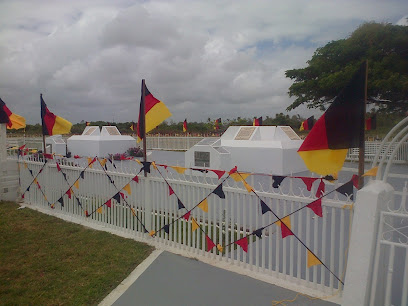
Essential places to dine
Spready's Snackette & Bakery
Discover authentic Guyanese flavors at Spready's Snackette & Bakery in Port Mourant – a delightful stop for snacks and freshly baked treats.
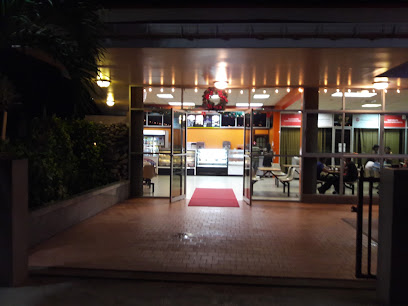
Big B's Baksh Restaurant (Halall) - Rosignol
Experience authentic Halal cuisine at Big B's Baksh Restaurant in Rosignol - a culinary delight blending tradition with flavor.
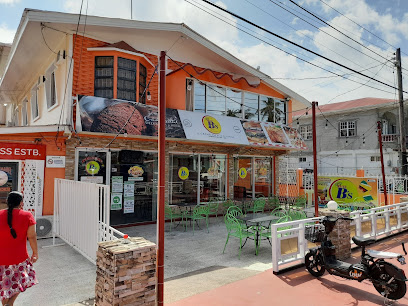
Sue Brothers
Discover Sue Brothers: An Authentic Chinese Restaurant in New Amsterdam Berbice Offering Flavorful Dishes and a Warm Atmosphere.
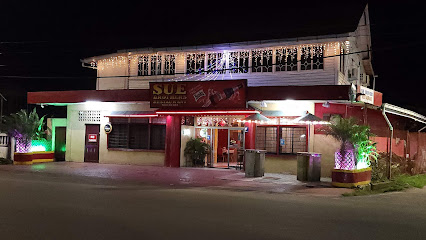
Faheeda's Restaurant
Experience authentic Guyanese cuisine at Faheeda's Restaurant in Skeldon—where every dish tells a story.
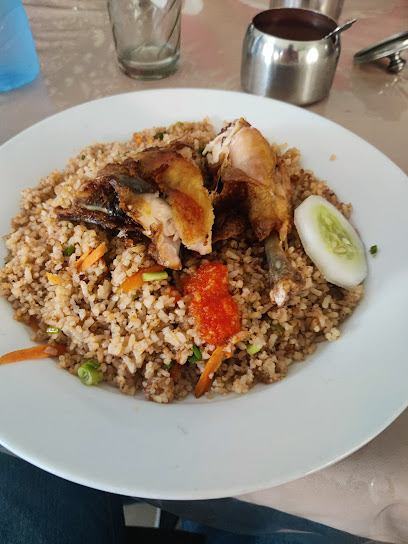
La Grill Hotel, Restaurant & Bar
Experience the rich flavors of Guyanese cuisine at La Grill Hotel, Restaurant & Bar in Skeldon – where every meal tells a story.
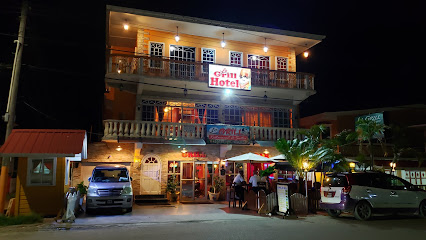
La Caribe Diner
Experience authentic Guyanese flavors at La Caribe Diner in New Amsterdam – where local ingredients meet culinary creativity.
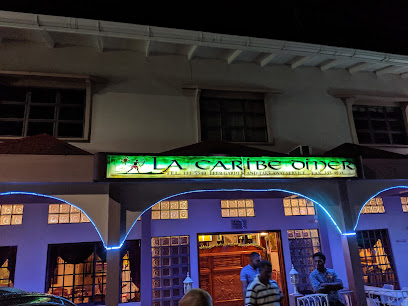
Fordy’s Catering Grill & Bar
Experience authentic Guyanese cuisine at Fordy’s Catering Grill & Bar in New Amsterdam - where every dish tells a story.
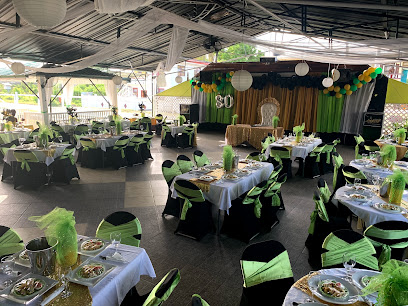
Ali's Halaal Snackette
Savor authentic halal snacks at Ali's Halaal Snackette in Port Mourant, where every bite tells a story of flavor and tradition.
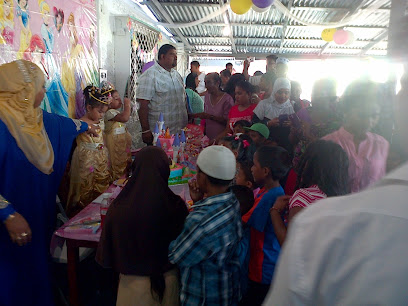
CARIBBEAN CUISINE RESTAURANT & COCKTAIL BAR
Discover authentic Caribbean flavors at this vibrant restaurant and cocktail bar in Berbice, perfect for food lovers and adventurers alike.
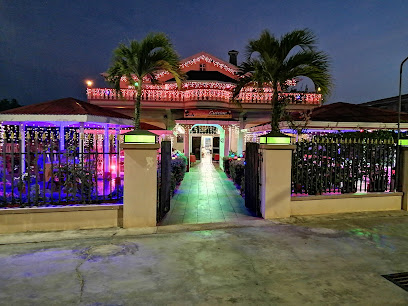
Churches Chicken
Experience mouthwatering fried chicken at Churches Chicken in Port Mourant – where flavor meets comfort in every bite.
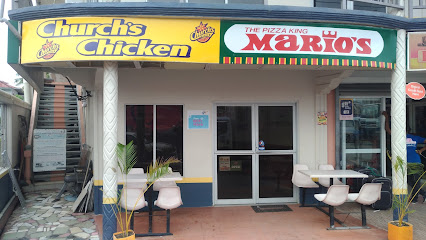
Munchies
Experience authentic Guyanese flavors at Munchies in Corriverton – where every meal is a celebration of taste.
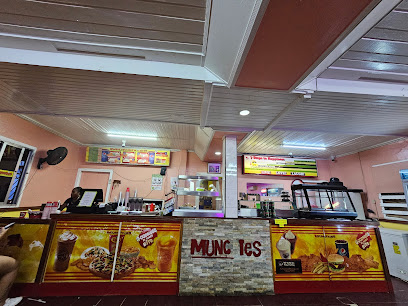
Church's Chicken
Discover the irresistible taste of Southern-style fried chicken at Church's Chicken in Skeldon – perfect for family meals or quick bites.
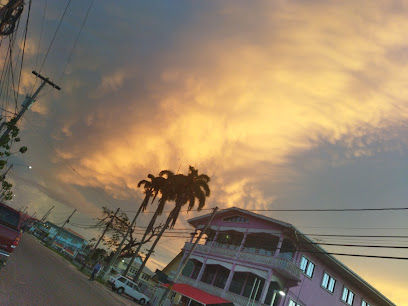
Floppy Chick-Inn Restaurant and Bar
Discover the taste of local cuisine at Floppy Chick-Inn Restaurant and Bar in New Amsterdam – where every meal is a celebration!
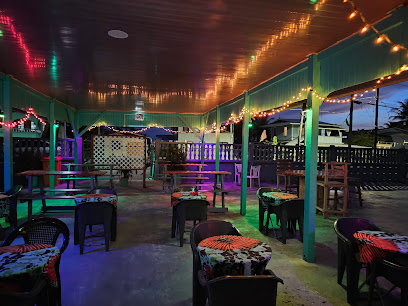
Lai Li Restaurant
Experience the rich tapestry of Asian cuisine at Lai Li Restaurant in Nigg – where every meal is a journey through flavor.
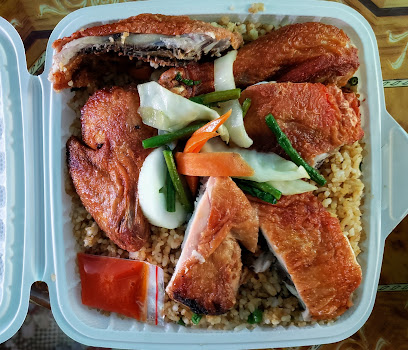
Sham Hallal Food and clothing
Discover authentic local cuisine and unique clothing at Sham Hallal Food and Clothing in Hampshire.
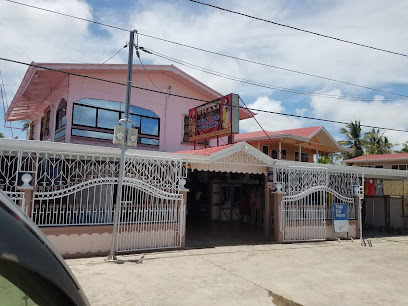
Markets, malls and hidden boutiques
Skeldon Market
Discover the bustling Skeldon Market in Guyana, where local flavors and vibrant culture come together in a delightful shopping experience.
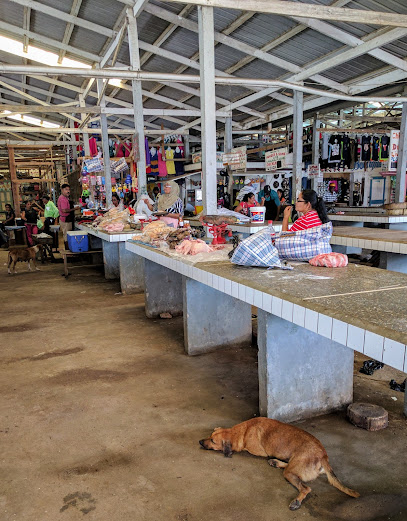
A. Ally & Sons Corriverton Depot
Explore A. Ally & Sons Corriverton Depot in Skeldon, Guyana, offering a diverse range of goods from clothing to home essentials for every traveler.
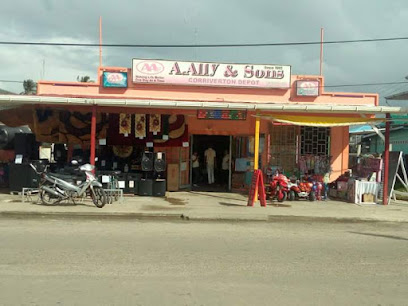
Riaz Computer - Skeldon Branch
Explore Riaz Computer in Skeldon for top-notch tech products and exceptional customer service in a welcoming atmosphere.
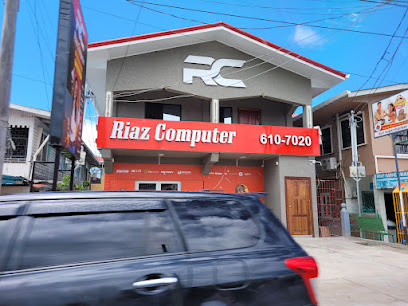
Deckers
Discover Deckers in Corriverton, a vibrant stationery store offering quality supplies and a welcoming atmosphere for all your creative needs.

J.P. Ghamandi Hardware Center
Discover a treasure trove of tools and hardware at J.P. Ghamandi Hardware Center in Corriverton, the ultimate destination for your home improvement needs.
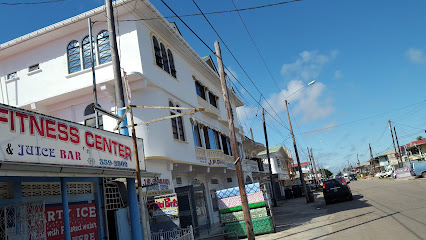
Vishnu Shop
Explore Vishnu Shop in Macedonia Village Corentyne for a unique local shopping experience filled with fresh produce and cultural charm.
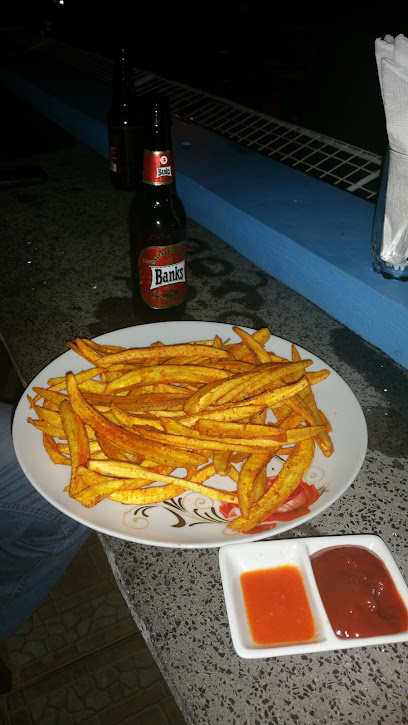
Venu Shopping Centre
Discover a world of beauty and wellness at Venu Shopping Centre, Skeldon's ultimate destination for cosmetics, perfumes, and health supplements.
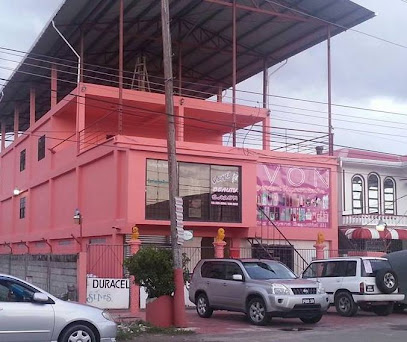
Shri Vinayak Shopping Centre
Explore stylish selections at Shri Vinayak Shopping Centre in Skeldon, where fashion meets local flair in a vibrant shopping atmosphere.
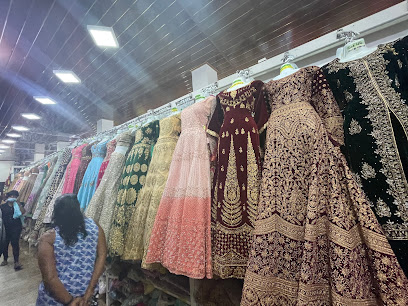
P. Ketwaroo & Sons Ent.
Explore P. Ketwaroo & Sons Ent. in Skeldon for a diverse selection of electronics and friendly service, perfect for tourists on the go.
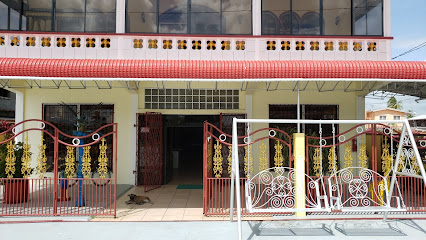
Nand Persaud and Company Ltd.Wholesale and Retail Outlet Skeldon
Explore the vibrant offerings of Nand Persaud and Company Ltd., a general store in Skeldon, where local culture and shopping come together.
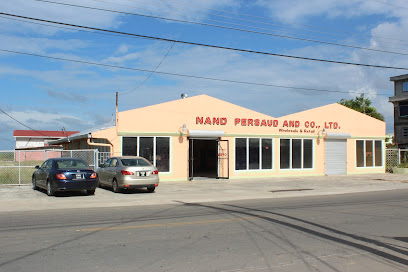
Eric Shop
Discover the local bar culture at Eric Shop in Skeldon, where refreshing drinks and friendly vibes await every visitor.

Hoosna Grocery
Explore the rich culinary heritage of Guyana at Hoosna Grocery, a local treasure trove of fresh produce and authentic ingredients.
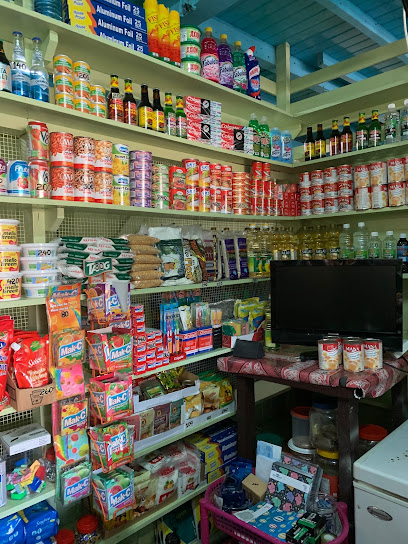
The Family Care Pharmacy
Discover The Family Care Pharmacy in Corriverton's Skeldon Market, your trusted partner for health and wellness while enjoying local culture.
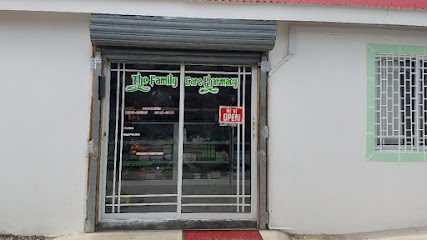
Jermaine's Boutique
Explore the heart of Skeldon’s fashion scene at Jermaine's Boutique, where local trends meet unique styles for every occasion.

Ronda clothing store
Discover unique fashion styles and local craftsmanship at Ronda Clothing Store in Skeldon – a perfect blend of culture and shopping.

Essential bars & hidden hideouts
Faheeda's Restaurant
Discover the culinary delights of Faheeda's Restaurant in Skeldon, where authentic flavors and a welcoming atmosphere await every visitor.
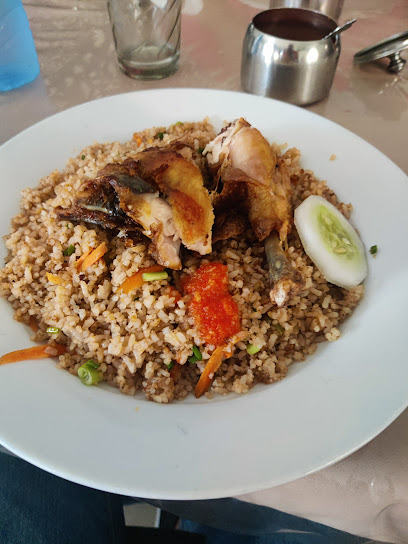
La Grill Hotel, Restaurant & Bar
Experience the vibrant flavors of Guyanese cuisine at La Grill Hotel, Restaurant & Bar in Skeldon, where warm hospitality meets culinary excellence.
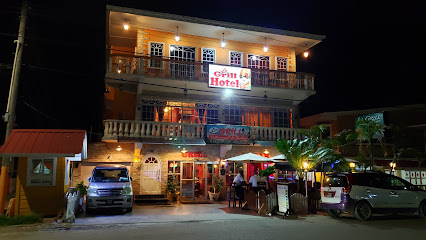
Munchies
Discover the vibrant culinary scene at Munchies in Corriverton, where delicious local dishes and a warm atmosphere await every visitor.
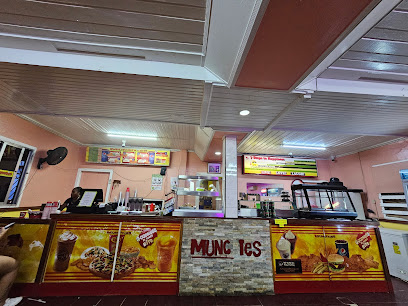
Church's Chicken
Experience mouth-watering fried chicken and side dishes at Church's Chicken in Skeldon, a favorite spot for locals and travelers alike.
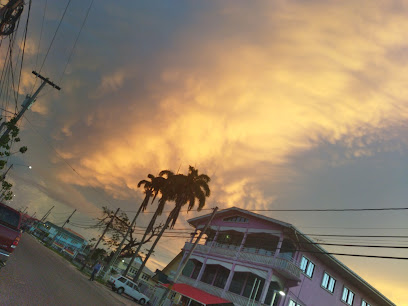
Sea N Breeze Sports club
Discover the vibrant Sea N Breeze Sports Club in Skeldon, where sports, leisure, and delicious cuisine converge for an unforgettable experience.
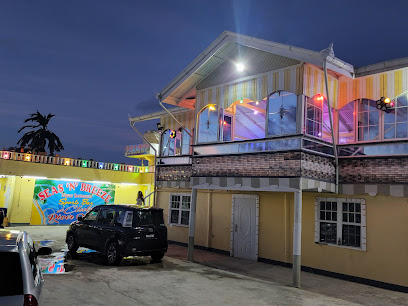
Waffles & Boba Bar
Experience the ultimate dessert destination at Waffles & Boba Bar in Skeldon, where bubble tea and ice cream unite for a truly delightful treat.

Caliente Spot
Discover the vibrant flavors of Corentyne at Caliente Spot, a top-rated restaurant where culinary excellence meets warm hospitality.
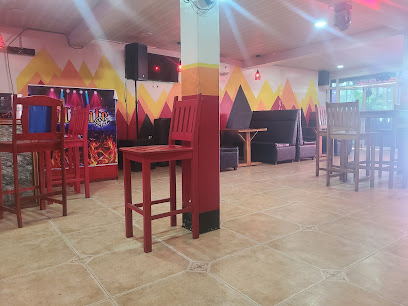
Yang's Chinese Restaurant
Discover the essence of Chinese cuisine at Yang's Chinese Restaurant in Skeldon, a must-visit dining destination for food enthusiasts.
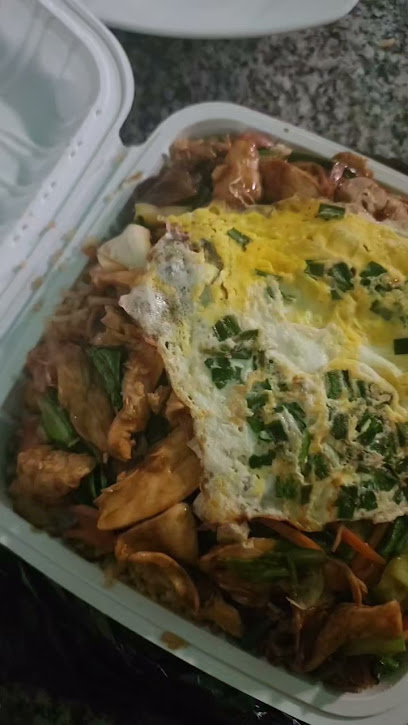
Bo's Guest House
Discover the vibrant flavors of Guyana at Bo's Guest House, a culinary gem in Corriverton offering an authentic dining experience for all.
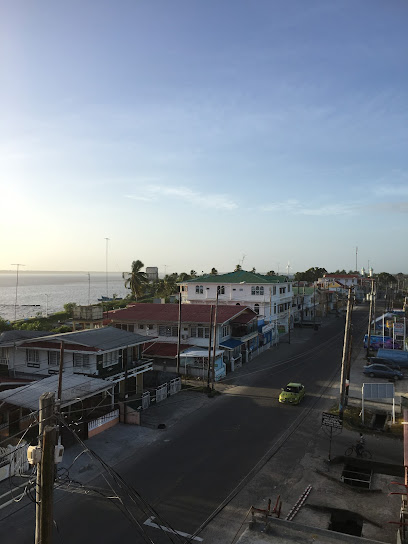
Village Bar
Experience the vibrant flavors and warm hospitality of Skeldon at Village Bar, where local cuisine meets cultural charm.

Dexter's Creole Restaurant
Discover the vibrant flavors of Caribbean cuisine at Dexter's Creole Restaurant in Skeldon, where every dish tells a story.

Razeeka's Restaurant
Discover the flavors of family-friendly dining at Razeeka's Restaurant in Corriverton, where local cuisine meets a warm and inviting atmosphere.

Eric Shop
Discover the warm atmosphere of Eric Shop, a local bar in Skeldon where drinks and camaraderie blend perfectly.

Universal Halaal Restaurant
Discover the rich flavors of authentic Chinese halal cuisine at Universal Halaal Restaurant in Skeldon, a must-visit for food lovers.

Local Phrases
-
- HelloWah gwaan
[Wa gon] - GoodbyeLater
[Ley-tah] - YesYeah man
[Yeh man] - NoNah man
[Nah man] - Please/You're welcomePlis/Tank yuh
[Plis/Tank yuh] - Thank youTenks
[Tenks] - Excuse me/SorrySowwy
[Sowwy] - How are you?How yuh deh?
[How yuh deh?] - Fine. And you?Mi deh aight. An yuh?
[Me deh aight. An yuh?] - Do you speak English?Yuh speak English?
[Yuh speak English?] - I don't understandMi nah ondastan
[Me nah on-das-tan]
- HelloWah gwaan
-
- I'd like to see the menu, pleaseMi wah see di menu, plis
[Me wah see dee menu, plis] - I don't eat meatMi nah eat meat
[Me nah eat meat] - Cheers!Big up!
[Big up!] - I would like to pay, pleaseMi wah pay, plis
[Me wah pay, plis]
- I'd like to see the menu, pleaseMi wah see di menu, plis
-
- Help!Help!
[Help!] - Go away!Geh weh!
[Geh weh!] - Call the Police!Call de Police!
[Call de Police!] - Call a doctor!Call a docta!
[Call a docta!] - I'm lostMi loss
[Me loss] - I'm illMi sick
[Me sick]
- Help!Help!
-
- I'd like to buy...Mi wah buy...
[Me wah buy...] - I'm just lookingMi just a look
[Me just a look] - How much is it?Awe much it deh?
[Awe much it deh?] - That's too expensiveDat too much
[Dat too much] - Can you lower the price?Yuh could drop de price?
[Yuh could drop de price?]
- I'd like to buy...Mi wah buy...
-
- What time is it?Awe time it deh?
[Awe time it deh?] - It's one o'clockIt one o'clock
[It one o'clock] - Half past (10)Haaf pass (10)
[Haaf pass (10)] - MorningMawnin
[Mawnin] - AfternoonAftanoon
[Aftanoon] - EveningEvenin
[Evenin] - YesterdayYestadeh
[Yes-ta-deh] - TodayTuhday
[Tuh-day] - TomorrowTomarra
[To-mar-ra] - 1One
[Wan] - 2Two
[Too] - 3Tree
[Tree] - 4Fo'
[Fo'] - 5Five
[Fiv] - 6Six
[Six] - 7Seven
[Sev-en] - 8Eight
[Ayt] - 9Nine
[Nain] - 10Ten
[Ten]
- What time is it?Awe time it deh?
-
- Where's a/the...?Weh deh...?
[Weh deh...?] - What's the address?Awe deh di address?
[Awe deh dee address?] - Can you show me (on the map)?Yuh could show mi (pan de map)?
[Yuh could show me (pan de map)?] - When's the next (bus)?Wen de next (bus) deh?
[Wen de next (bus) deh?] - A ticket (to ....)A ticket (to ....)
[A ticket (to ....)]
- Where's a/the...?Weh deh...?
History of Skeldon
-
Skeldon, located in the northeastern region of Guyana, near the border with Suriname, has its roots deeply embedded in the colonial history of the region. The area was originally inhabited by indigenous peoples before European colonization began in the 17th century. The Dutch were among the first Europeans to establish settlements in the region, and they were later followed by the British who took control in the early 19th century.
-
The history of Skeldon is closely tied to the sugar industry, which was the backbone of its economy for many years. The Skeldon Sugar Estate, established during the British colonial period, became one of the most important sugar plantations in the area. The estate not only provided employment for many locals but also attracted migrant laborers from other parts of Guyana and the Caribbean, particularly indentured laborers from India. This diverse influx of people has had a lasting impact on the cultural fabric of Skeldon.
-
Between 1838 and 1917, thousands of indentured laborers were brought from India to work on the sugar plantations, including the Skeldon Sugar Estate. This period marked a significant demographic shift in Skeldon, leading to the establishment of a vibrant Indo-Guyanese community. The cultural heritage of these early immigrants is still evident today in the local cuisine, festivals, and customs.
-
In the early 21st century, the Guyanese government initiated the Skeldon Sugar Modernization Project (SSMP) to revitalize the declining sugar industry. The project included the construction of a new state-of-the-art sugar factory and infrastructure improvements. Although the project faced numerous challenges and criticisms, it represented a significant effort to sustain one of Skeldon's historical economic pillars.
-
Skeldon is a melting pot of cultures, reflecting its diverse history. The town hosts various cultural events and festivals, such as Diwali, Phagwah (Holi), and Christmas, which are celebrated by the different ethnic communities. The rich cultural tapestry is also evident in the local cuisine, which features a blend of African, Indian, and Indigenous influences. Landmarks such as the Skeldon Hindu Temple and local mosques are testament to the town's religious diversity.
-
Skeldon's proximity to the Corentyne River makes it strategically important for trade and transport. The river serves as a natural border between Guyana and Suriname, and the Skeldon area has historically been a point of interaction and exchange between the two countries. The town's location has also made it a focal point for cross-border commerce and cultural exchange.
Skeldon Essentials
-
Skeldon is situated in the Upper Corentyne area of Guyana, near the border with Suriname. The nearest international airport is Cheddi Jagan International Airport in Georgetown, about 200 kilometers away. From Georgetown, you can take a domestic flight to Corriverton, which is the closest town to Skeldon. Alternatively, you can travel by bus or car, which takes approximately 4-5 hours. The road trip offers a scenic view of the Guyanese countryside.
-
In Skeldon, local transportation options include taxis, minibuses, and bicycles. Taxis are readily available and relatively inexpensive for short distances. Minibuses operate on fixed routes and are a common mode of transport for locals. Bicycle rentals are also available for those who prefer a more active way to explore the area. For longer journeys, you can hire a private car or use regional bus services to nearby towns and cities.
-
The official currency in Guyana is the Guyanese Dollar (GYD). Credit cards are accepted in some hotels, restaurants, and larger stores, but it is advisable to carry cash, especially for small businesses and markets. ATMs are available in Skeldon, but it is prudent to withdraw sufficient cash in Georgetown before traveling. Currency exchange services are also available in major towns.
-
Skeldon is generally safe for tourists, but like any travel destination, it’s important to take standard precautions. Avoid walking alone at night, especially in unfamiliar areas. Petty theft can occur, so keep an eye on your belongings in crowded places. Specific high-crime areas targeting tourists are not commonly reported, but it’s always best to stay vigilant and aware of your surroundings.
-
In case of an emergency, dial 911 for immediate assistance. The local police station and medical facilities are available in Skeldon. It is recommended to have travel insurance that covers medical emergencies. For minor health issues, there are pharmacies in the town where you can purchase over-the-counter medications. Hospitals and clinics in nearby Corriverton also offer medical services.
-
Fashion: Do dress modestly and comfortably. Lightweight clothing is recommended due to the tropical climate. Avoid overly revealing outfits. Religion: Do respect local customs and religious practices. Always ask for permission before photographing religious sites. Public Transport: Do be respectful to fellow passengers. Don’t eat or drink on public transport. Greetings: Do greet people with a friendly 'good morning' or 'good afternoon'. Handshakes are common. Eating & Drinking: Do try local dishes and accept food offerings graciously. Don't refuse hospitality, as it is considered impolite.
-
To experience Skeldon like a local, visit the local markets where you can buy fresh produce and handmade crafts. Engage with the locals, who are often friendly and willing to share stories about the area’s history and culture. Don’t miss visiting the Skeldon Sugar Estate, which offers insight into the region’s agricultural heritage. For a unique experience, take a boat trip on the Corentyne River, which provides picturesque views and opportunities for bird watching.
Trending Landmark in Skeldon
-
Stabroek Market
-
The 1763 Monument
-
Skeldon Market
-
I Love Guyana Sign
-
St George's Cathedral
-
Berbice Bridge Company
-
Fort Zeelandia
-
Number 63 Beach
-
Umana Yana
-
D'Urban Park
-
Bath Settlement
-
The Christianburg Waterwheel
-
Indian Arrival Monument
-
The Rs Farm | Agri-Eco Retreat | Outdoor Event Space
-
Non-Aligned Monument
Nearby Cities to Skeldon
-
Things To Do in New Amsterdam
-
Things To Do in Kwakwani
-
Things To Do in Ituni
-
Things To Do in Linden
-
Things To Do in Bartica
-
Things To Do in Anna Regina
-
Things To Do in Lelydorp
-
Things To Do in Paramaribo
-
Things To Do in Mariënburg
-
Things To Do in Brokopondo
-
Things To Do in Moengo
-
Things To Do in Albina
-
Things To Do in Kamarang
-
Things To Do in Lethem
-
Things To Do in Princes Town





